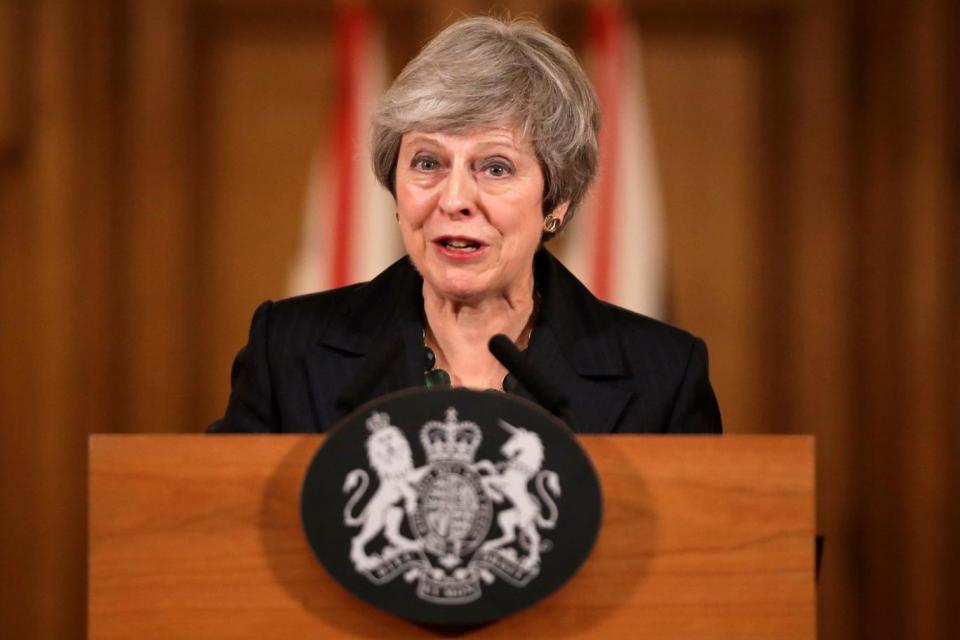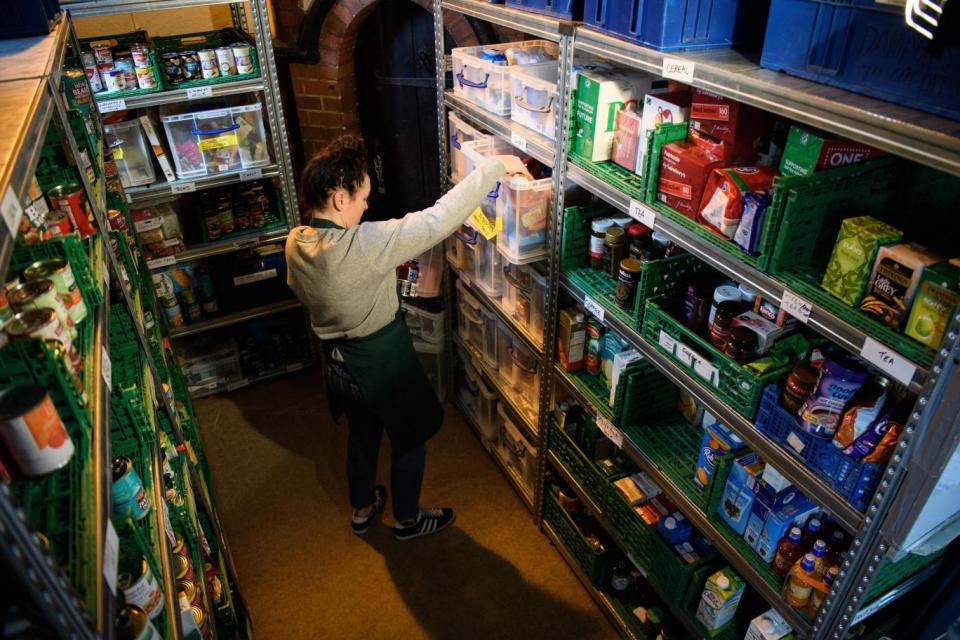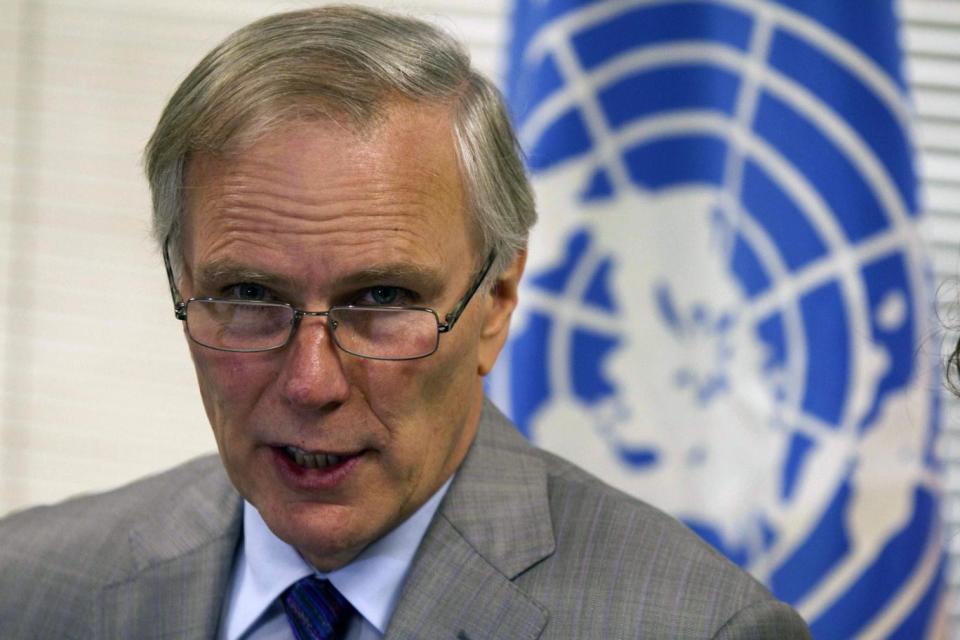UN report blasts Britain's 'punitive, mean-spirited, and often callous' stance on poverty with dire warning over Brexit

Britain's austerity measures have inflicted huge misery on the poorest in society, as the number of people living in poverty reaches 14 million according to a new UN report.
The UN's envoy on extreme poverty has published a damning report, blasting the government's policies as “punitive, mean-spirited, and often callous”, which have inflicted "great misery" on millions.
The Conservative government has pushed for "radical social re-engineering", the report said, with a "driving force that has not been economic", as successive governments have chased to revolutionise the minimum levels of fairness.
And as Theresa May's government faces huge pressure amid multiple cabinet resignations and Tory infighting, the report slams another nail in Brexit's coffin.
The government has denied the accuracy of the report, which is backed up by evidence from the National Audit Office, the Institute of Fiscal Studies and numerous charities' research.
“We completely disagree with this analysis," a spokesman for the Department of Work and Pensions said. "With this Government’s changes, household incomes have never been higher, income inequality has fallen, the number of children living in workless households is at a record low and there are now one million fewer people living in absolute poverty compared with 2010."

But Philip Alston, the UN’s envoy on extreme poverty and human rights said "The Government has remained determinedly in a state of denial" over its failure to protect those most in need.
"For almost one in every two children to be poor in twenty-first century Britain is not just a disgrace, but a social calamity and an economic disaster, all rolled into one," he wrote.
The government's benefits freeze for families, which only covers the first two children, where "in the same ball park" as China's one child policy, he added.
Despite Britain being the fifth largest economy in the world, it is "patently unjust and contrary to British values that so many people are living in poverty," he wrote in the new report published today.
And as Brexit reaches a critical moment, the report warned the affects of "deep uncertainty", and drops in growth anticipated by the IMF have been an "after-thought"
"In my meetings with the government, it was clear to me that the impact of Brexit on people in poverty is an after-thought, to be dealt with through manipulations of fiscal policy after the event, if at all," wrote Mr Alston, an eminent human rights lawyer.
Main points from the report
The level of poverty and "despair" in Britain is obvious to anyone who sees the queues outside foodbanks and people sleeping rough, said the report.
Austerity Britain is in breach of four UN human rights, relating to women, children, disabled people and economic and social rights.
14 million people (one in five) are living in poverty
1.5 million are "destitute"
Almost half of all children live below the poverty line.
Homelessness has more than doubled since 2010
A limit on benefits payments to only the first two children in a family is driving up the cost of off-setting benefits with other funds.
“If you got a group of misogynists in a room and said how can we make this system work for men and not for women they would not have come up with too many ideas that are not already in place,” he told a press conference in London, as policies have hit women disproportionately with massive cuts to support for single parents.
The report said the government's policy using "employment as the cure all for poverty" has failed, as 60 per cent of households affected by poverty have someone in work, fuelled by an economy built on "low wages, insecure jobs and zero hours contracts", as 10 per cent of all workers over 16 are on precarious contracts.
The report comes at a time when the roll-out of the government's new Universal Credit system has come under intense fire for leaving millions of people worse off.

Homeless dying in our streets
The Standard reported recently on the how failure to properly fund homeless prevent and accommodation services was leaving local councils with a £300 million bill on hotel rooms alone. The wider immediate cost of insufficient homeless funding is expected to be in the billions.
In London alone, 165 homeless people died last year - their names read out at a ceremony in St Martin in the Fields last week. A report by the Bureau of Investigative Journalism discovered some died of starvation, while others were alone in the streets or packed into overwhelmed homeless shelters.
Jacob Quagliozzi, director at Housing Justice said: “There are many contributory factors to an individual rough sleeping, the difficulties in accessing genuinely affordable housing is key and issues around welfare, particularly Universal Credit give real cause for concern
"Through our work with 40 night shelters across London we also see the personal cost of rough sleeping in terms of mental and physical health.”
And as the roll-out of Universal Credit starts to affect London, more in-work families will be attending the foodbanks.
Jon Glackin of Streets Kitchen said: "When Universal credit kicks in we're going to be feeding more people and giving them help.
"We serve people who aren't homeless but are worried they will be if they lose a benefits payment, and others who are in work, but can't afford a place to live because their salary isn't enough to support them."

Then work and pensions secretary Esther McVey faced flack in parliament when she admitted “some people” on Universal Credit will be worse off – with reports some claimants would receive up to £200 less per month. The fate of Universal Credit is now up in the air after she was one of several Cabinet Ministers to resign from her post this week.
"This brutally honest report couldn't be clearer: the Government's decade of destructive austerity policies have punished the poorest not out of economic necessity - but out of pure ideological obsession with shrinking the state," Green Party MP for Brighton Caroline Lucas said.
"People were right to vote for drastic change in 2016. This must be a wake-up call for all MPs, telling them to stop obsessing over plots and resignations and put the public first.

"We urgently need a People's Vote designed to rebuild our communities and transform our economy so it works for everyone."
Unite general secretary Len McCluskey said: “The Tories’ austerity has always been a political choice. It was no accident that those who have paid the heaviest price for the cuts to our services and longest slump in wages in two centuries were the poor and the vulnerable.
“Even more cuts are on the way, making a nonsense of the PM’s claim that `austerity is over’. They should get out of the way and let the business of healing our country be done by a government that puts the people first.”
A DWP spokesperson re-affirmed the government's view that Universal Credit was continuing to bring people out of poverty.

“Universal Credit is supporting people into work faster, but we are listening to feedback and have made numerous improvements to the system including ensuring 2.4 million households will be up to £630 better off a year as a result of raising the work allowance.
This month, Chancellor Philip Hammond presented a tax cut for richer households and said the austerity era is "finally coming to an end" - but he was blasted again by the UN envoy's report.
“Austerity could easily have spared the poor, if the political will had existed to do so," Mr Alston said.

 Yahoo News
Yahoo News 
